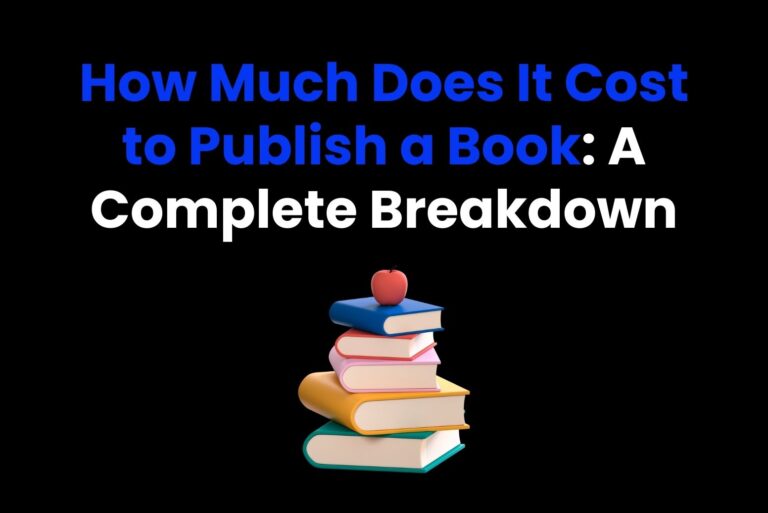Write a Book About Your Life: Tips for Crafting an Engaging Memoir
Keep in mind that our memories are everything. Actually, they’re pretty much all we’ve got and what we pass on, right? So, maybe to write a book about your life could totally be a solid idea.
Well, many people dream about this. And sure, it’s great to have your memories and experiences in a physical format. Although is a huge task (even if it’s a rewarding one).
So, what are the steps to write this autobiography? Just as we said before, if you don’t know you don’t have to worry at all. Since in this post we’ll share the secrets to ace your memoir book and to have all your life put down on paper for everyone to read.
Do you want to know more? Read on!
Reasons to write a book about your life or an autobiography
When you are writing your autobiography you might get frustrated because it really does seem like a lot. But when you finish it, it’s totally rewarding.
Why is that?
Well, for many reasons. Actually, it doesn’t matter if want to inspire others, save memories for your family, or just figure yourself out a little more, there are so many good reasons to write it all down. So, let’s check out a few of the top ones.
1. Preserve your legacy
Actually, a big reason to write a book about your life is to leave a legacy. By sharing your experiences and the lessons you’ve learned you’re making sure you leave your mark. Plus, your autobiography can be a real gem for your family and anyone who wants to learn from you.
2. Reflect and gain personal insight
When you write a book about your life it can really make you take a good look at yourself. Remember that when you go into your memories and put everything in order, you might start seeing things in a whole new light. In fact, you’ll probably catch some patterns or meaning that didn’t make sense before.
3. Inspire others
Surely everyone has their own unique story, and sharing yours can be a total experience, too! For example, even if it’s about pushing through tough times, or chasing a big dream your story can give someone the spark they need.
And you know what? You never know if your words might give someone the courage to keep going.
4. Leave a record of history
Remember that your personal history is actually part of the world’s bigger story. So, when you write a book about your life, you’re not just telling your own tale you’re sharing your view on important moments in history. Likewise it’s a glance through the things you’ve lived.
5. Create a sense of accomplishment
Writing your life story isn’t easy since it takes focus, determination, and a lot of effort. But once you finish?
The feeling of crossing that line is priceless.
For sure, there’s nothing like holding your book in your hands and knowing that you did that by yourself.
6. Connect with others
When you do an autobiography, you are getting into a way to really connect with people. That is because you put it all in. For example, your struggles, wins, and everyday moments.
Plus, your autobiography helps build a bridge between you and your readers. Before you know it, they’ll feel like they’re walking in your shoes.
Step by step on how to write a book about your life
Alright, so you get why you want to write your autobiography, right? Cool, now let’s dive into how to do it.
Think of writing your autobiography like going on a fun trip down memory lane. But instead of just chilling and thinking about the past, you’re actually sharing your whole awesome journey with everyone! Also, it’s great for reflecting and coming into conclusions about your life and what you’ve done.
Ready to get started?
1. Reflect on your life story
First, you need to sit back, relax, and think about your life. Also, think about this:
- What are the biggest moments?
- The most embarrassing?
- The most inspiring?
Just after doing that, you need to take into account the people who’ve shaped you and the things you’ve learned along the way. Additionally, it’s super useful if you start a journal to keep everything on track.
These days, you can keep track of your own history drafting ideas online, on a journal or even an App. But having all of the information organized and handy will help you a lot make the writing easy. After all, remember that an autobiography is a really big project. The easier you make it, the better!
2. Find your main focus
So, now that you have the big picture of your life the next is to pick what do you want to write.
For instance, you could talk about a lot of different things but try to narrow it down as much as you can. Also, you can focus on a certain time, like your childhood, or a big turning point. But if you don’t want to, you could talk about something like how you found yourself or overcame a big challenge. By picking one clear focus, your book will have direction and flow.
3. Be honest and real
Now, being honest is super important. This is because people like stories that feel real, raw, and honest. In other words, don’t be afraid of sharing the highs and lows because in your life, everything matters.
Also, being honest means talking about the tough stuff like the mistakes, regrets, and things you’re not proud of. This does not mean you need to disclose private aspects of your life that you don’t want to share. People don’t really need that (even though perhaps they’d love it, too!). The crucial part is to offer an honest take on your life. You readers would love seeing the real you within the book. That it’s just magic.
4. Add details to bring it to life
Your story gets way more interesting when you add details that make people feel like they’re right there with you. Also, don’t just tell, what you want is to describe things. Here, talk about the people, places, and feelings that meant a lot to you.
For instance, think about what you saw… herd or smelled. That’s because the more you add, the more your readers will feel connected. This way, they’ll be inside the story with you.
5. Organize your story
Once you know your theme and the memories you want to share, think about how to organize it. The way you do this can make your story easier to follow. You can keep it simple, going in order from when you were a kid, or mix it up by jumping between times or themes.
Think about how the story feels. Sometimes jumping around helps show how certain things shaped you. Or you could organize it by the big lessons you learned, tying everything together.
6. Think about who’s reading it
Having your audience into consideration is a big deal when writing a story. For example, are you writing for your family, people who’ve been through similar stuff, or just anyone looking for inspiration?
Actually, the answer does matter because it will change completely how you’re writing your book.
Yeah, your story is about you, but it’s also about connecting with others. Additionally, your experiences might help someone else going through the same thing. So, keep that in mind as you write, so your story really clicks with them.
7. Don’t skip the editing
Remember that your first draft is only the beginning. And to start actually writing, you need to have everything down to clean it up. What this means is to proofread it and make it flow better. For example, fix the little mistakes, and make sure it all flows right.
Take your time with it. Then, read it like it’s fresh and ask yourself, “Does this make sense? Is it clear?”
Overall, can ask a friend or family member to help, or if you want to go all in, hire a pro to fix it up. This is when your story goes from “eh” to “wow.”
8. Respect other people’s privacy
So, if you’re writing about other people, be careful with their privacy. Your story’s your story, but not everyone wants their business out there. Before you spill the beans about someone else, make sure to ask them if it’s cool—especially if it could mess with their rep. Otherwise, you could end up in a weird spot.
Sometimes, you might want to switch up names or details to keep things low-key. That way, you’re still sharing your story without putting anyone else in an awkward situation. Just be respectful, and you’ll avoid any drama or awkwardness later on.
9. Enjoy the ride
Writing your life story isn’t just about facts—it’s about having fun too! As you write, let yourself enjoy the process of figuring out your own story. You’ll probably learn some cool stuff about yourself, and it feels pretty awesome. Plus, the more you enjoy it, the easier it’ll flow.
Also, play around with how you write, the style, and even the tone. This is YOUR story, so make it yours. Just remember, you’re not just telling a tale—you’re creating something that’s all you. And that’s pretty exciting!
Want to enhance your writing skills to share your life story? Try Arvin AI!
Well, to wrap this up… to write and proofread your life story can be huge. Actually, even if you’re a seasoned writer, having extra help can make all the difference.
So, no matter if it’s improving the flow of your story, making sure your ideas come across clearly, or catching those little mistakes, support is key.
That’s where tools like Arvin AI come in.
With its real-time suggestions and smart proofreading, it helps polish your writing and keep things on track. If you’re just getting started or putting the final touches on your book, Arvin AI can be the perfect sidekick to make your writing process smoother and your story even better.
FAQs
What should be included when you write a book about your life?
So, what should you include when writing a book about your life? First off, think about the big stuff like the key moments, the challenges, the wins, and the lessons you’ve learned.
Adding to that, make sure to talk about your turning points and core memories. Also, no matter what type of book your writing, since the most important thing is to be real.
Do I need writing experience to write a book about your life?
No formal writing experience is necessary. Also, the most important part of writing a book about your life is your story. But if you’re that concerned with your writing skills, just take classes or hire an editor.
How do you publish a book about your life?
By the time your life story is written, you can look into traditional publishing or self-publishing.
But what does that mean?
Well, if you choose traditional publishing you can go with:
- Research literary agents
- Publishers who specialize in memoirs or autobiographies T
Then, you can submit your manuscript following their rules and guidelines. On the other side, you can use Amazon KDP, for example, if you want to publish it yourself.
How do I wrap up my autobiography?
Basically, think about how far you’ve come and what you’ve learned. Your ending should show the journey you’ve been on. You can also mention what you’ve learned or what kind of legacy you want to leave. Then, just use the last few paragraphs to bring everything together.



![How to Write a Movie Review for Film Critiques? [2025]](https://arvin.chat/wp-content/uploads/2024/12/35072-768x439.png)

